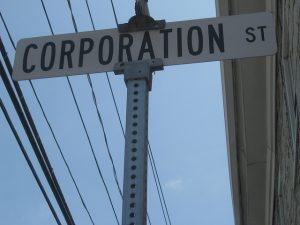The COVID-19 pandemic has caused unprecedented economic disruption, creating sudden financial distress across industries. Companies are now facing impacts ranging from a dramatic decline in revenue of uncertain duration, to potential setbacks to M&A transactions, to delayed or canceled financing rounds.
With even some previously well-performing companies potentially entering the so-called zone of insolvency, it’s important to review the fiduciary duties owed by directors and officers and how discharging those duties may change in the face of financial distress.
A Refresher On Fiduciary Duties. Let’s start with a high-level overview of the fiduciary duties of directors and officers of a Delaware corporation. This primer is not a substitute for specific legal advice but may help provide context for discussions with counsel.
- The Key Duties. Under Delaware law, directors and officers owe fiduciary duties of due care and loyalty.
- The duty of due care requires directors and officers to make informed decisions in good faith and in the best interests of the company.
- The duty of loyalty requires directors and officers not to engage in self-dealing and to put the interests of the company ahead of their own.
- Solvency. Under Delaware law, when a company is solvent, the directors and officers owe their fiduciary duties of due care and loyalty to the corporation and to the stockholders.
- This remains true even for a company in the zone of insolvency (more on that concept below).
- Stockholders of a solvent company have standing to bring derivative claims for breach of fiduciary duty against directors and officers.
- Insolvency. When a company is insolvent, meaning it’s not able to pay its creditors in full, the directors and officers still owe their fiduciary duties of due care and loyalty to the corporation.
- However, upon insolvency, creditors have standing to bring derivative claims for breach of fiduciary duty against directors and officers.
- Creditors cannot bring direct claims for breach of fiduciary duty, giving directors and officers flexibility in negotiations with lenders or other creditors.
- Follow this link for more on the key Delaware decision discussing the fiduciary duties of directors and officers in the insolvency context.
- Zone of Insolvency. The zone of insolvency is a term used to describe a company that is still solvent but is approaching insolvency.
- For a number of years the courts suggested that if a company entered the zone of insolvency, fiduciary duties expanded to include creditors (as well as shareholders).
- That’s no longer the case. The Delaware Supreme Court clarified that the key inflection point for fiduciary duties is actual insolvency, not the zone of insolvency. Upon actual insolvency, fiduciary duties are still owed to the corporation (rather than being expanded to include creditors) but creditors gain the right to bring derivative claims for breach of fiduciary duty.
- However, it can be challenging to determine whether a company is still solvent or has already crossed into actual insolvency. The zone of insolvency concept therefore can serve as a useful “caution flag” for directors and officers assessing the issue.
- Discharging Fiduciary Duties in Insolvency. With that refresher in mind, how should directors and officers best discharge fiduciary duties for a company that has become insolvent? This is a very fact-intensive analysis, and directors and officers should seek specific legal advice for their company’s particular situation, but here are some issues to consider.
- Generally, the focus should be on maximizing enterprise value without taking undue risk, which will maximize recovery for creditors as the new residual rights holders.
- Maximizing value may also benefit stockholders but care should be taken if pursuing an upside for stockholders puts creditor recoveries at greater risk.
- Directors should assess all aspects of the company’s business, seek input from legal and financial advisers where helpful, hold Board meetings as often as needed, follow good corporate process, and continue to avoid conflicts of interest.
- This will allow directors to enjoy the protection of the business judgment rule, which provides that courts will not second guess a director’s good faith business judgment made with due care.
- Many companies may have to make immediate or longer-term reductions in expenses and cash burn in an attempt to extend the runway for a turnaround, financing, or sale transaction.
- If the company has borrowed money from a bank or other secured lender, it’s also critical to assess the lender’s rights, potential remedies, and prospects for a restructuring.
- Even in difficult situations, maximizing value may mean continuing operations — even though that burns cash — for a limited period to allow the company to complete a sale that the directors believe is likely to close and produce significant value for creditors.
- In other cases, it may mean winding down (or even shutting down) operations quickly to conserve cash, especially if any asset sale is not expected to generate more than the cash required to pursue it.
- Restructuring and wind-down alternatives, including Chapter 11 bankruptcy and assignments for the benefit of creditors, may need to be considered as well.
The Unique Impact of COVID-19. The COVID-19 pandemic and government orders precluding non-essential business operations have produced widespread financial impacts.
- Companies that have been performing well previously, but are now experiencing financial distress primarily because of COVID-19, may need to assess factors that go beyond those of a traditional distressed company.
- These could include, among others: financial contingency planning based on the possible duration of the pandemic and stay-at-home or similar orders; negotiations with lenders for short or near-term debt service extensions, additional liquidity, or a restructuring of loan facilities; and potential changes in customer preferences or supplier availability once the pandemic eases.
- In addition, COVID-19 has prompted federal, state, and local governments to consider assistance programs for specific industries and potentially for businesses across the economy.
- If these programs are enacted, companies will have to assess whether they are eligible for financial assistance, the conditions placed on receiving assistance, and how long it could take before relief would actually be received.
Conclusion. The COVID-19 pandemic has disrupted businesses across the economy and caused unexpected and immediate financial impacts. Directors and officers faced with managing through these issues will benefit from specific legal advice about their fiduciary duties and how best to discharge them in these newly uncertain times.
Photo by Drew Beamer on Unsplash


